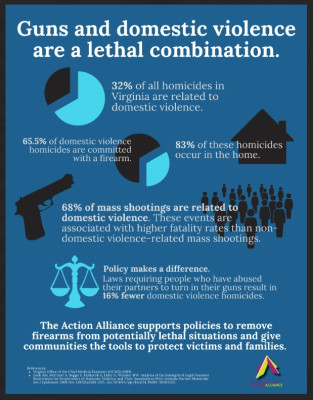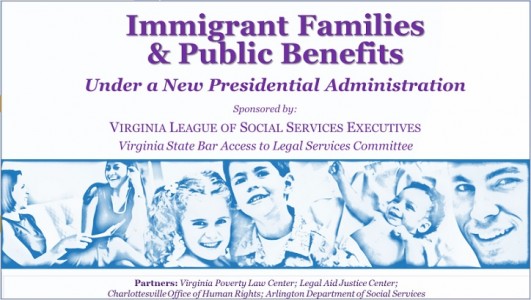Resources Library: Healthcare Professionals
Start a Search:
Guns and Domestic Violence are a lethal combination - Infographic

The Action Alliance supports policies to remove firearms from potentially lethal situations and give law enforcement officers, prosecutors, and courts tools to effectively enforce measures to protect victims, their families, and the broader community. This infographic highlights some of the ways that firearm-based violence and domestic violence intersect featuring statistical data from multiple resources.
Health Issues Affecting Trafficked Individuals
Summarizes the health issues affecting trafficked individuals. Includes information on these topics:
Considerations about status and legal proceedings: How individuals and their health problems are treated will depend on where arrested trafficked individuals are located and what kind of evidence is required for legal proceedings.
Health Problems: Health problems affecting trafficked individuals forced into commercial sex work and/or involuntary labor can be contracted because of the conditions in unsafe immigration routes utilized by traffickers and those in sending or receiving countries. Socio-economic determinants like substandard housing, illiteracy, racism, etc., affect health and access to healthcare.
Complex Traumas and Oppressions
Healthcare Providers
Medical Records and Care
High Risk Screening for Women of Childbearing Age
This handout was provided by Martha Kurgans, from the Department of Behavioral Health and Developmental Services, at the workshop titled "How Community Service Boards and Domestic Violence Programs Can Help Each Other" at the Virginia Department of Social Services Office of Family Violence Promising Practices conference on September 16, 2013.
HIV trends in Virginia 2014 - 2018 - Report
The Division of Disease Prevention produces quarterly and annual reports on HIV Surveillance data, and also produces an Epidemiology Profile of those living with HIV that is updated annually with data on key populations affected by the disease.
These reports can be found here on the VDH website (Data and Reports box)
If additional data are needed, please contact VDH directly to discuss.
The Centers for Disease Control (CDC) also has a number of reports available at their site, with state-level and national data on HIV surveillance. These can be found here.
Immigrant Families & Public Benefits: Under a New Presidential Administration

Recent changes to immigration enforcement have resulted in social services agencies across Virginia reporting decreased numbers of immigrant families requesting access to services. Some immigrant families even seek to withdraw their U.S.-born children from crucial benefits for which they are eligible due to fear of immigration enforcement. This PDF document is from a webinar given on March 31, 2017, to discuss changes in the immigration enforcement landscape, its impact on immigrant communities, immigrants' eligibility for public benefits for themselves and their U.S.-born children and strategies to encourage immigrant families to continue to access public benefits for which they are eligible. The webinar was sponsored by the Virginia League of Social Services Executives, Legal Aid Justice Center, Virginia Poverty Law Center and the Virginia State Bar Access to Justice Committee.

